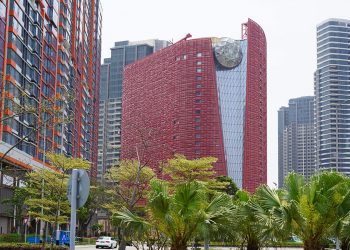Members of the Second Standing Senate Committee of the Macau Legislative Assembly have raised concerns over an article contained in Macau’s new junket law requiring confidential documents to be provided at the government’s request.
According to Article 56 of the Legal Framework for Operating Games of Chance in Casinos, titled “Obligation to cooperate”, any person or entity must, upon request of the DICJ and the Financial Services Bureau (DSF), provide the required documents, even if the documents are subject to confidentiality obligations.
The original text of the bill states, “In order to implement the provisions of this law, any person or entity must collaborate with the MSAR Government and provide all necessary support, providing DICJ and DSF with necessary documents, information, elements or evidence when requested, even if they are subject to a duty of secrecy.”
This means that if the government needs to intervene in the investigation of matters involving junkets, agents or management companies, any person or entity must cooperate in the investigation by providing all relevant documents – even if they are subject to confidentiality agreements. Failure to comply with the provision will be a violation under Article 40 of the bill, punishable by up to one year in prison.
The Chairman of the Second Standing Committee, Chan Chak Mo, revealed afterwards that some members expressed the view that the provision would expand the powers of the DICJ and the DSF, and questioned why the provision was not written clearly.
“Legally speaking, even if a confidential document belongs to a law firm or an accounting firm, as long as the DICJ or the DSF wants to obtain the document, the organization concerned has to produce it,” Chan said.
Asked if this contradicts existing laws requiring express permission of a judge to obtain privileged documents, Chan said there are already real-life precedents such as cases where police are required to enter a house without the consent of the court to conduct an investigation.
However, he also believes the government should explain clearly the content of the confidentiality obligation, why the provision is not written clearly, and whether it will indirectly expand the powers of the DICJ and the Financial Services Bureau.
The committee also discussed the “illegal taking of deposits”. The bill emphasizes that junkets, agents and management companies cannot accept deposits, but the law does not mention whether concessionaire can do so. The committee is seeking advice from the Legislative Council’s advisory team and is expecting an answer at Friday’s meeting.

































